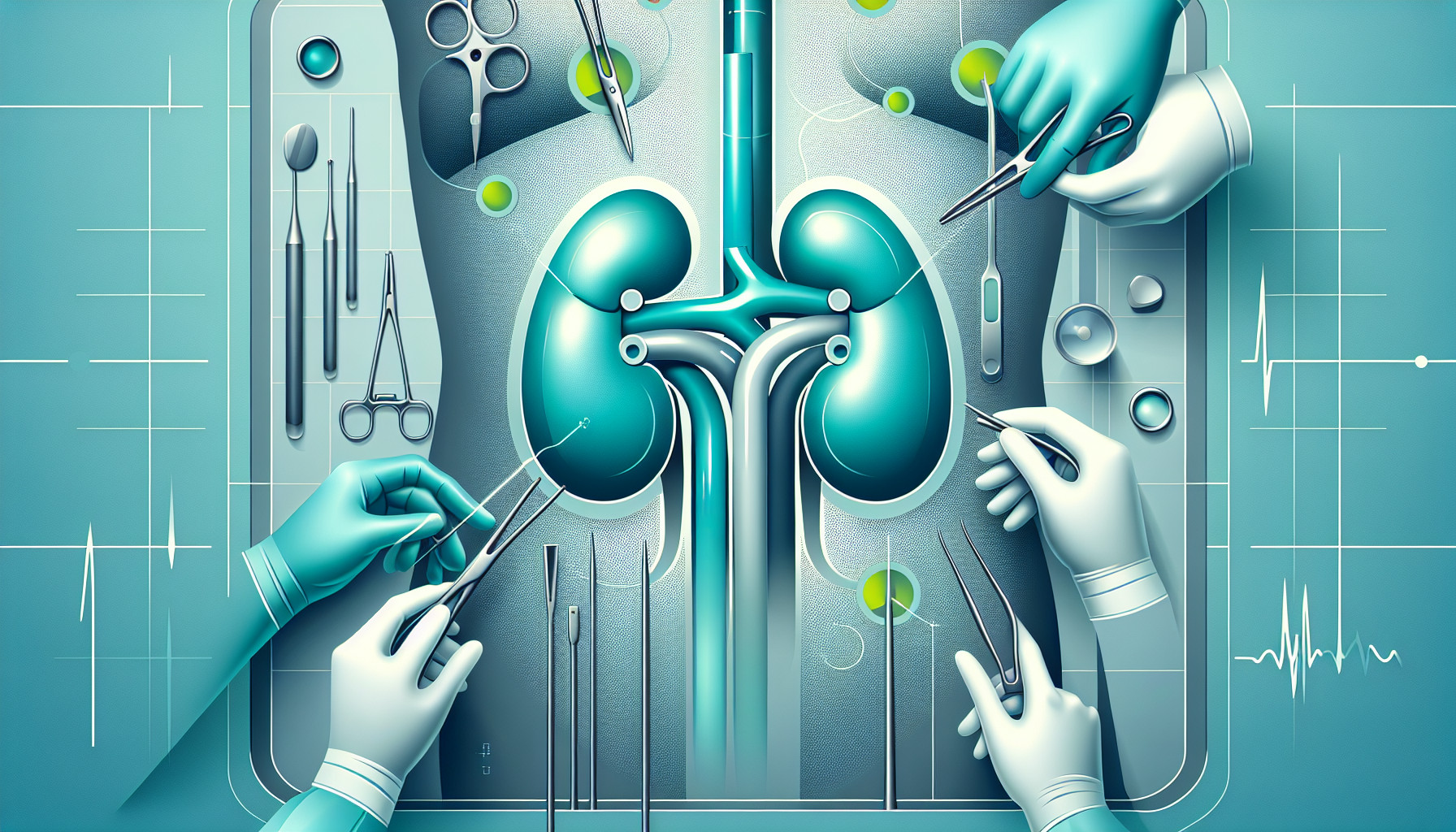Our Summary
High blood pressure (hypertension) is common in patients who have received a kidney transplant. This can be due to various reasons, such as factors related to the donor, the body’s response to having a new organ, or narrowing of the kidney’s arteries. Uncontrolled high blood pressure can lead to serious heart problems and can also reduce the lifespan of the transplanted kidney.
Currently, there is no specific guideline for managing blood pressure in kidney transplant patients based on in-depth studies known as randomized controlled trials. The Kidney Disease: Improving Global Outcomes (KDIGO) and the American Society of Transplantation (AST) are the only two organizations that have provided a target blood pressure for these patients.
In this paper, we are reviewing the available studies and evidence related to the management of blood pressure in kidney transplant patients. Based on this, we believe that keeping blood pressure at or below 130/80 is a good target, as suggested by KDIGO. Also, the type of medication used to control blood pressure should depend on the patient’s other health conditions. However, overall control of blood pressure is more important than the specific medication used. The first choice of medication should be calcium channel blockers, beta-blockers, diuretics, and drugs that work on a hormone system called angiotensin, as these have been shown to reduce heart problems in the general population.
FAQs
- Why is high blood pressure common in patients who have received a kidney transplant?
- What is the recommended target blood pressure for kidney transplant patients according to KDIGO and AST?
- What kind of medication is typically recommended for controlling blood pressure in kidney transplant patients?
Doctor’s Tip
It is important for kidney transplant patients to closely monitor their blood pressure and work with their healthcare team to find the best medication and lifestyle changes to keep it under control. Regular check-ups and communication with your doctor are crucial in maintaining the health of your transplanted kidney.
Suitable For
Patients who are recommended for kidney transplant typically have end-stage renal disease (ESRD) and are dependent on dialysis for survival. They may also have conditions such as diabetes, autoimmune diseases, genetic disorders, or chronic kidney disease that have led to kidney failure. These patients have been evaluated by a transplant team and deemed suitable candidates for a transplant based on various factors such as age, overall health, and ability to comply with post-transplant care.
In general, younger patients with fewer comorbidities and a good support system are considered better candidates for kidney transplant. Patients with certain infections, active cancer, or severe heart or lung disease may not be eligible for transplant. Additionally, patients with a history of non-compliance with medical treatments or a high risk of complications from surgery may not be recommended for transplant.
It is important for patients who are recommended for kidney transplant to undergo a thorough evaluation and counseling process to understand the risks and benefits of the procedure. They will also need to be prepared for the lifelong commitment to medication, monitoring, and follow-up care that comes with a transplant. Ultimately, the decision to undergo a kidney transplant should be made in collaboration with the patient’s healthcare team based on their individual circumstances and goals.
Timeline
Before kidney transplant:
- Patient is diagnosed with end-stage renal disease and referred for a kidney transplant evaluation.
- Patient undergoes a series of tests and evaluations to determine eligibility for a transplant.
- Patient is placed on a waiting list for a deceased donor kidney or seeks a living donor.
- Patient undergoes surgery to receive a new kidney from a deceased or living donor.
- Patient is closely monitored in the hospital for signs of rejection or complications.
After kidney transplant:
- Patient is prescribed immunosuppressant medications to prevent rejection of the new kidney.
- Patient is monitored closely for signs of rejection, infection, and other complications.
- Patient may experience high blood pressure as a common complication post-transplant.
- Patient is advised to follow a healthy diet, exercise regularly, and avoid smoking and excessive alcohol consumption.
- Patient attends regular follow-up appointments with their transplant team to monitor kidney function and overall health.
- Patient may need to make adjustments to their medications or lifestyle to manage blood pressure and other health issues.
- With proper management and care, the transplanted kidney can provide improved quality of life and longevity for the patient.
What to Ask Your Doctor
Some questions a patient should ask their doctor about kidney transplant and high blood pressure management include:
- What is my target blood pressure goal after receiving a kidney transplant?
- What are the potential risks of high blood pressure in kidney transplant patients?
- How often should I have my blood pressure monitored post-transplant?
- What lifestyle changes can I make to help control my blood pressure?
- What medications are commonly used to manage high blood pressure in kidney transplant patients?
- Are there any potential interactions between my anti-rejection medications and blood pressure medications?
- What are the potential side effects of blood pressure medications, and how can they be managed?
- Are there any specific dietary recommendations to help control blood pressure post-transplant?
- How does blood pressure management impact the long-term success of my kidney transplant?
- Are there any warning signs or symptoms I should be aware of that could indicate my blood pressure is not well-controlled?
Reference
Authors: Aziz F, Clark D, Garg N, Mandelbrot D, Djamali A. Journal: Transplant Rev (Orlando). 2018 Oct;32(4):225-233. doi: 10.1016/j.trre.2018.06.002. Epub 2018 Jun 20. PMID: 30293557
